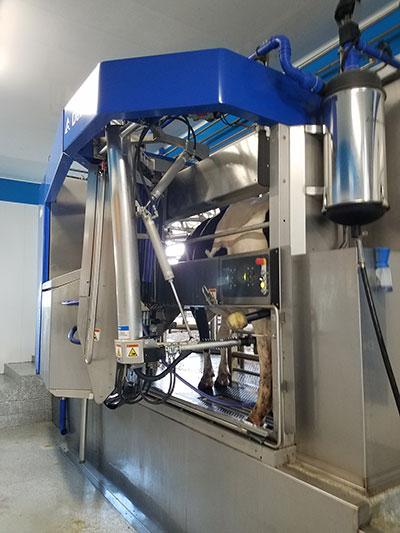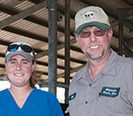
We installed robots on the sides of our freestall barn in 2019 and were up and running by November of that year. Prior to this, we had traveled all over the country looking at different robotic dairies that were using DeLaval voluntary milking systems. We did this to see what we thought would work — and wouldn’t work — for us.
The dealers told us up front that we would hate them for the first few months to a year, and that was not a lie. Having robots milk your cows is not for the faint of heart, especially in the beginning. But eventually, one day you wake up and say, “This is nice.”
When something goes wrong with a robot, it will send an alarm to your phone. Sometimes you will get 15 or more alarms in a day. Other times, you can go 15 days with hardly any alarms. Robots are not perfect, but if you treat your robots well, they tend to treat you well also.
Every day we wash and clean the robots inside and out. We make sure the manure pans and the feed bowls are clean. We wash inside and outside the cabinets. Every other week we change inflations. We also try to do a total shut down for about 10 minutes once a week. Ever since we have been doing that, it has knocked out a lot of the random alarms caused by a glitch of some sort. This gives the robots a fresh reboot. The number of incomplete milkings declines almost immediately when we do these shutdowns.
Robots are supposed to have maintenance kits completed every few months. This is key. We have gotten behind on maintenance kits before, and the alarms will start piling up. The seals and parts that wear out will do just that — wear out. Maintenance is so important on these machines.
At the end of the day, good maintenance keeps happy robots!

Mark and Caitlin Rodgers are dairy farmers in Dearing, Georgia. The Rodgers have a 400-cow dairy that averages 32,000 pounds of milk. Follow their family farm on Facebook at Hillcrest Farms Inc.








